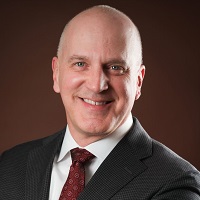No Kids to Rely On? Seven Things Solo Agers Must Do Now
If you don’t have children or a support system of close friends nearby, you face some special challenges. For peace of mind, answer these seven questions.


Profit and prosper with the best of Kiplinger's advice on investing, taxes, retirement, personal finance and much more. Delivered daily. Enter your email in the box and click Sign Me Up.
You are now subscribed
Your newsletter sign-up was successful
Want to add more newsletters?

Delivered daily
Kiplinger Today
Profit and prosper with the best of Kiplinger's advice on investing, taxes, retirement, personal finance and much more delivered daily. Smart money moves start here.

Sent five days a week
Kiplinger A Step Ahead
Get practical help to make better financial decisions in your everyday life, from spending to savings on top deals.

Delivered daily
Kiplinger Closing Bell
Get today's biggest financial and investing headlines delivered to your inbox every day the U.S. stock market is open.

Sent twice a week
Kiplinger Adviser Intel
Financial pros across the country share best practices and fresh tactics to preserve and grow your wealth.

Delivered weekly
Kiplinger Tax Tips
Trim your federal and state tax bills with practical tax-planning and tax-cutting strategies.

Sent twice a week
Kiplinger Retirement Tips
Your twice-a-week guide to planning and enjoying a financially secure and richly rewarding retirement

Sent bimonthly.
Kiplinger Adviser Angle
Insights for advisers, wealth managers and other financial professionals.

Sent twice a week
Kiplinger Investing Weekly
Your twice-a-week roundup of promising stocks, funds, companies and industries you should consider, ones you should avoid, and why.

Sent weekly for six weeks
Kiplinger Invest for Retirement
Your step-by-step six-part series on how to invest for retirement, from devising a successful strategy to exactly which investments to choose.
Contrary to popular belief, effective planning for solo aging extends far beyond legal paperwork and financial power of attorney arrangements. A solo ager is an older adult without the support of adult children or close family members, either by choice or circumstance, as defined by Ailene Gerhardt, a solo aging educator and founder of NavigatingSolo.com. Of course, solo agers need to consider how to structure a financial power of attorney (POA) with their financial adviser or elder law attorney. But that’s far from their only concern.
To empower my clients who are aging solo, I pose critical questions to kick-start their planning process. It’s about ensuring a sense of security and peace of mind. Below are the seven questions I ask, accompanied by the proactive approach I recommend for my clients.
1. Who will you call if you have an emergency at 2 in the morning?
When I ask my clients this question, it usually jump-starts their thinking about planning as solo agers. All older adults need a team of people around them as they age, especially solo agers.
From just $107.88 $24.99 for Kiplinger Personal Finance
Become a smarter, better informed investor. Subscribe from just $107.88 $24.99, plus get up to 4 Special Issues

Sign up for Kiplinger’s Free Newsletters
Profit and prosper with the best of expert advice on investing, taxes, retirement, personal finance and more - straight to your e-mail.
Profit and prosper with the best of expert advice - straight to your e-mail.
Solo agers need to build a network of professionals, neighbors and possibly extended family members who can check in on them daily. It’s about fostering a community and sense of connection. Location is key: Having someone nearby who can pick up groceries or shovel snow makes a huge difference for solo agers.
2. Do you know where to begin planning for a solo retirement?
I empower my clients to consider key aspects of solo aging planning, including legal matters, health care needs, long-term care planning, housing and transportation choices, support networks, strategies for living an engaged life and finances. Each solo ager may already have strengths in these areas, or they may need to work on building their capacity by taking the next best step.
Resources like the Life Plan Assessment or the Solo Aging Plan Checklist are good places to start.
3. What local professional resources do you have?
It’s important to assemble a team of professionals capable of filling the support roles traditionally held by family members. That team may include an elder law attorney to handle legal matters, a patient advocate or geriatric care manager to oversee health care decisions, financial professionals to manage financial affairs and neighbors or friends in town who can help in a crisis.
If your health is declining, then starting with a care manager or patient advocate may be your most pressing need. Next, if solo agers haven’t updated their will or trust in the last decade, then I advise them to start with an elder law attorney.
4. What financial documents do you need?
A durable power of attorney gives someone selected by the solo ager the authority to manage their finances if they cannot do so or want help. In contrast, a limited power of attorney allows the person selected to make only certain decisions on the solo ager’s behalf, such as paying monthly bills from their checking account. A third option is called a springing power of attorney, which doesn’t take effect unless the solo ager is declared incompetent.
If solo agers die without a will, the state’s laws prevail, which means distant relatives could inherit their assets. Note that legal documents drawn up online may not hold up in court, so working with an estate planning or elder law attorney is recommended.
5. What medical documents do you need?
At a minimum, solo agers need a living will to enumerate wishes for how they want to be treated in certain medical situations and ensure a trusted person is making other medical decisions. A health care proxy (also known as a health care power of attorney or an advance directive) gives a person designated by a solo ager the right to make medical decisions on their behalf if they can’t speak for themselves.
Solo agers will need a medical release form to permit doctors to share information with the health care proxy. Investment advisers and financial institutions often have similar forms called a letter of diminishing capacity that allows them to contact doctors or trusted friends if they’re concerned about a solo ager’s competency. Additionally, paperwork like a POLST (physician order for life-sustaining treatment) or a MOLST (medical order for life-sustaining treatment) — ensures that emergency clinicians know a solo ager’s wishes regarding life-saving requests.
6. What should you do if you hadn’t planned on being a solo ager but now find your situation is changing?
Some of the best advice on this topic is from Joy Loverde, a senior living expert and author of The Complete Eldercare Planner and Who Will Take Care of Me When I’m Old? Joy shares, “If you realize that your circumstances will mean that you will become a solo ager, starting as early as possible is important to plan for the future. That includes planning for your financial, emotional and physical well-being. Planning for solo aging is much easier and far less stressful if done before a crisis.” Today is the best day to start planning.
7. Do solo agers need to go it alone?
No. Solo agers don’t have to navigate their journey alone. In reality, a growing community of solo agers is forming online and in person, providing invaluable support and resources. Some websites, like Sara Zeff Geber, Nancy Ruffner, Carol Marak and Steve Gurney’s Positive Aging Sourcebook, offer valuable insights and connections for solo agers.
Planning for solo aging requires attention to detail and proactive steps to establish a comprehensive support network and financial framework. By addressing these critical aspects, solo agers can navigate their retirement years with confidence and security.
Related Content
- Long-Term Care Planning Protects You and Your Family
- What Happens if You Die Without a Will?
- All About Designating Beneficiaries in Estate Planning
- Four Steps to Help You Have a Comfortable Retirement
- Longevity: The Retirement Problem No One Is Discussing
Profit and prosper with the best of Kiplinger's advice on investing, taxes, retirement, personal finance and much more. Delivered daily. Enter your email in the box and click Sign Me Up.

Financial adviser Tom West, CLU®, ChFC®, AIF®, founded Lifecare Affordability Plan (LCAP) to address a critical need for actionable planning that integrates finances, healthcare and senior housing. Tom has nearly 30 years of experience guiding families through financial and healthcare decisions. By bridging the gap between finance and healthcare, LCAP’s experienced team works with individuals and financial advisers to provide families with a financial strategy that meets changing healthcare needs while preserving the caregiver’s quality of life.
-
 Quiz: Do You Know How to Avoid the "Medigap Trap?"
Quiz: Do You Know How to Avoid the "Medigap Trap?"Quiz Test your basic knowledge of the "Medigap Trap" in our quick quiz.
-
 5 Top Tax-Efficient Mutual Funds for Smarter Investing
5 Top Tax-Efficient Mutual Funds for Smarter InvestingMutual funds are many things, but "tax-friendly" usually isn't one of them. These are the exceptions.
-
 AI Sparks Existential Crisis for Software Stocks
AI Sparks Existential Crisis for Software StocksThe Kiplinger Letter Fears that SaaS subscription software could be rendered obsolete by artificial intelligence make investors jittery.
-
 Social Security Break-Even Math Is Helpful, But Don't Let It Dictate When You'll File
Social Security Break-Even Math Is Helpful, But Don't Let It Dictate When You'll FileYour Social Security break-even age tells you how long you'd need to live for delaying to pay off, but shouldn't be the sole basis for deciding when to claim.
-
 I'm an Opportunity Zone Pro: This Is How to Deliver Roth-Like Tax-Free Growth (Without Contribution Limits)
I'm an Opportunity Zone Pro: This Is How to Deliver Roth-Like Tax-Free Growth (Without Contribution Limits)Investors who combine Roth IRAs, the gold standard of tax-free savings, with qualified opportunity funds could enjoy decades of tax-free growth.
-
 One of the Most Powerful Wealth-Building Moves a Woman Can Make: A Midcareer Pivot
One of the Most Powerful Wealth-Building Moves a Woman Can Make: A Midcareer PivotIf it feels like you can't sustain what you're doing for the next 20 years, it's time for an honest look at what's draining you and what energizes you.
-
 I'm a Wealth Adviser Obsessed With Mahjong: Here Are 8 Ways It Can Teach Us How to Manage Our Money
I'm a Wealth Adviser Obsessed With Mahjong: Here Are 8 Ways It Can Teach Us How to Manage Our MoneyThis increasingly popular Chinese game can teach us not only how to help manage our money but also how important it is to connect with other people.
-
 Looking for a Financial Book That Won't Put Your Young Adult to Sleep? This One Makes 'Cents'
Looking for a Financial Book That Won't Put Your Young Adult to Sleep? This One Makes 'Cents'"Wealth Your Way" by Cosmo DeStefano offers a highly accessible guide for young adults and their parents on building wealth through simple, consistent habits.
-
 Global Uncertainty Has Investors Running Scared: This Is How Advisers Can Reassure Them
Global Uncertainty Has Investors Running Scared: This Is How Advisers Can Reassure ThemHow can advisers reassure clients nervous about their plans in an increasingly complex and rapidly changing world? This conversational framework provides the key.
-
 I'm a Real Estate Investing Pro: This Is How to Use 1031 Exchanges to Scale Up Your Real Estate Empire
I'm a Real Estate Investing Pro: This Is How to Use 1031 Exchanges to Scale Up Your Real Estate EmpireSmall rental properties can be excellent investments, but you can use 1031 exchanges to transition to commercial real estate for bigger wealth-building.
-
 The 8 Stages of Retirement: An Expert Guide to Confidence, Flexibility and Fulfillment, From a Financial Planner
The 8 Stages of Retirement: An Expert Guide to Confidence, Flexibility and Fulfillment, From a Financial PlannerRetirement planning is less about hitting a "magic number" and more about an intentional journey — from understanding your relationship with money to preparing for your final legacy.